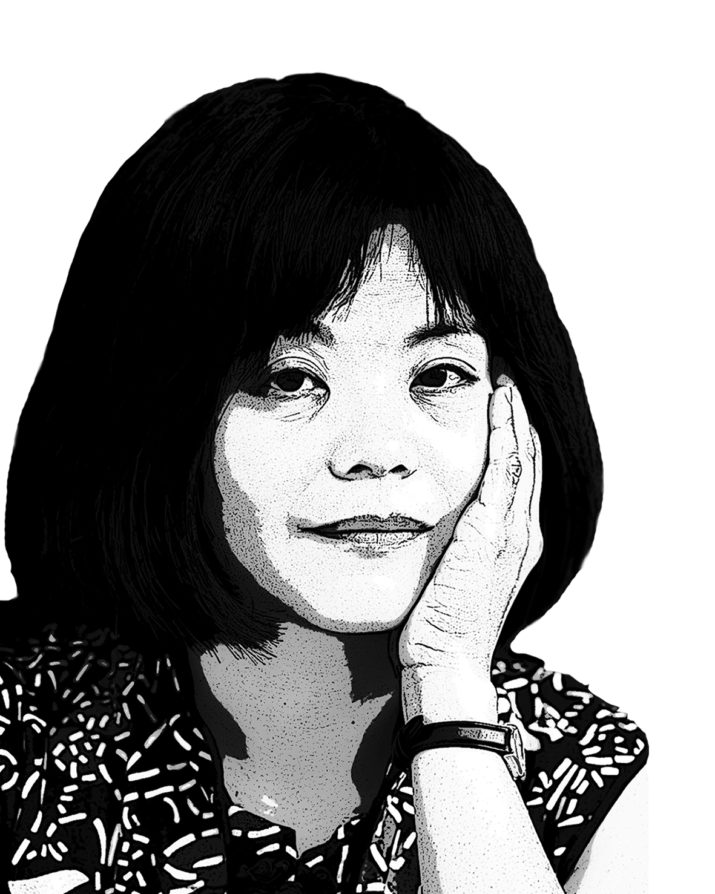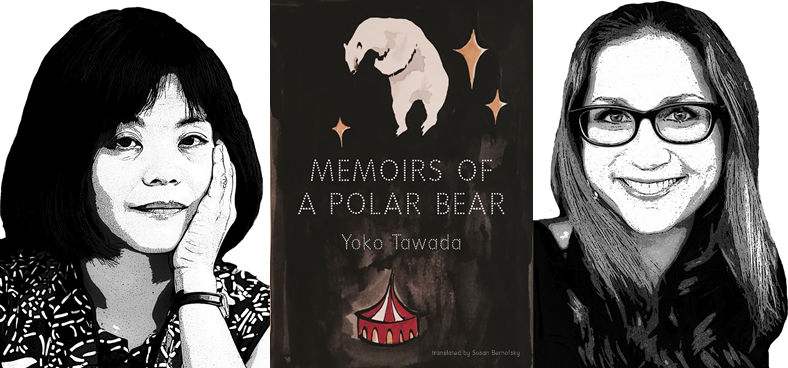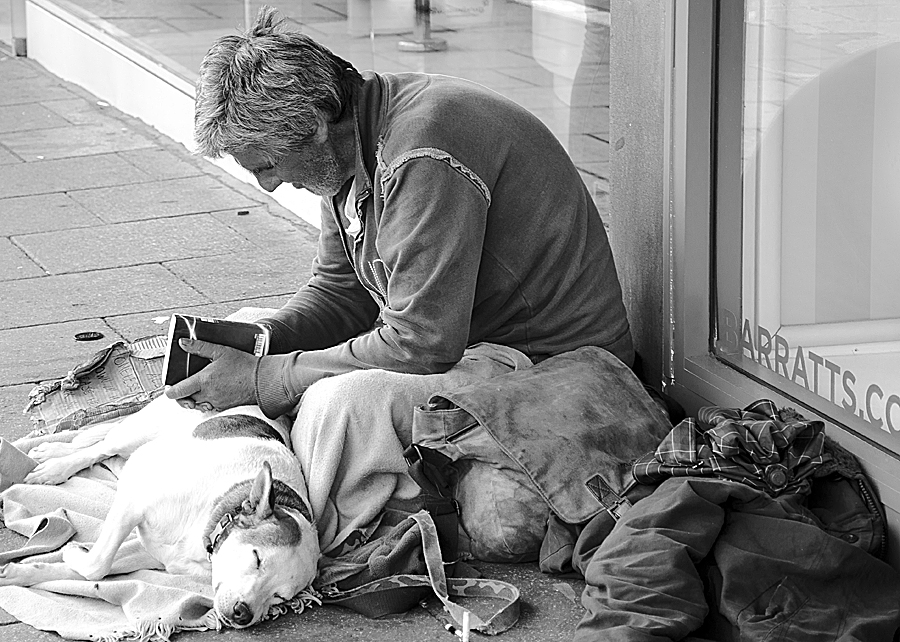

Translated from the German by Susan Bernofsky
He turned his head away, but the nipple came with it as if glued to his mouth. There was a seductively sweet odor, his brain could melt in it. While his mouth relented and opened, his nose twitched three times. Was the warm liquid running down his chin milk or saliva? He collected all his strength in his lips, swallowed, and felt the luke-warm sensation descend, landing in his stomach. His belly grew ever rounder, his shoulders lost their strength, and his four limbs hung heavy.
His ears picked out one voice amid a chorus of sounds. The voice awoke his vision. Gradually things assumed clearer forms. There were two arms with hair on them, milk flowed from one, while the other held the drinker’s body in an advantageous position. Drinking, he forgot all else, and when his belly was full, sleep overcame him. Each time he woke, he was surrounded by four unfamiliar walls.
He looked up and noticed a small white piece of paper attached to the upper edge of a wall. He thought he could reach it, but it was hung too high. What is it? There were two black noses and four eyes, otherwise everything was white, snow white. There were ears too. A strange animal, or perhaps two animals, on a sheet of paper. Thinking was too much of an exertion, it cast him back into slumberous depths.
Soon he understood that he was not surrounded by walls but instead lay in a crate. All at once a floppy cloth animal sat beside him. How can you fend off the desire for sleep when you’re wrapped in a wool blanket beside this soft companion, being gently squeezed?
As soon as he entered the sleepers’ realm, the air around him grew sharply colder, with glittering silvery particles of light falling all around him. He watched the miniature flakes floating, they danced, liberated from gravity, yet still went on falling: falling ever farther until at last they alighted on the frozen earth and disappeared. The white, icy ground was full of cracks. With every step, the crack widened, and blue water showed through beneath the ice crust. When the dreamer placed all his weight on one foot, he saw circular waves expanding in the blue water. Surely it would feel pleasant to slide into these cold depths. But how to go on breathing if he could no longer climb back out?
He heard someone coming. The white world disappeared, and a hirsute, languid green rose up around him. This was the wool blanket that lacked all character and let itself be shaped into ever different forms. High walls made of wood were covered with a strange pattern of streamlines and circles. The prisoner already knew he couldn’t climb the steep wooden wall, but nonetheless he found it impossible to keep still. He raised his right arm high and immediately fell over to the left. With his next attempt, he fell to the right, then again to the left.
High above him, someone was breathing in and out. His own breath and this other one refused to synchronize, they remained two separate entities. When one breathed in, the other breathed out. One mouth expelling breath was surrounded by a beard, and above this was a nose, and further up two eyes. Out of these eyes, two hairy arms grew. What existed in between couldn’t yet be discerned. But gradually it became clear that all these parts belonged together and comprised a being: the source of milk. The inner wall of the crate was impatiently scratched.
“Aha, you’re trying to climb over the Berlin Wall, but they’ve already torn it down,” the strong, hairy arms said, lifting the wall-climber up toward the beard. In the middle of this bush of beard hair, two moist lips were gleaming. “You wanted to get out of your crate, and now you’re out. How do you like being outside? Might I ask you to describe your first impressions, sir?” The milk-drinker was glad there was a place called “outside.” Outside, he was given milk. But that wasn’t the only reason he loved “outside.” Even when he wasn’t hungry, his hands still hankered to go out and scratched at the inside wall of his crate. His neck stretched long and high, trying to see what was out there, even if he could catch only the briefest glimpse. His life force wanted to leave this interior space.
His snout was the seat of the strength that bade him continue his efforts. His limbs were still too weak for walking. The impatient snout urged them on. His front legs kept sliding apart until his chin landed on the ground.
The man with the strong arms always excitedly called out the word “Knut!” to announce the milk. Desire for the white liquid acquired the name “Knut.”
When he’d sucked in several mouthfuls of milk, the warmth began to make its way through his ribcage. The milk-lust named Knut reached his belly. He could feel his heart. Something warm fanned out from the center of his heart, arriving in the very tips of his fingers. His abdomen murmured melancholically, his anus itched, and just before he fell asleep, he was prepared to describe this entire well-warmed territory as Knut. A new man appeared in the room. He gave the giver of milk with the strong arms the name “Matthias” and the milk- drinker the name “Knut.” The new man placed a box on the table and said: “Matthias, this is the scale I’ve been going on about. Precise, reliable, easy to use. With equipment like this you can even weigh a flea.” Knut looked at the apparatus. Perhaps it’s to gnaw on or lick, he thought hopefully, but his new playmate soon proved a disappointment. It was plastic-white, smooth, and boring. On top of the box a small bathtub was mounted, but there was no water in it.
Knut was placed in this bathtub. He put his right paw on the edge of the tub and then his left paw, because he wanted to jump out. Matthias quickly pushed them back into the tub. This time Knut put not only his paws but also one of his back legs over the edge. The little bear, limber as an octopus, raised up his rear end to investigate the world tail-first. The new man patiently removed all of Knut’s clutching limbs from the edge, gently pressing down on his white back. Then he quickly took his hands away, bent down, and looked at the scale from the side. After the weighing, he returned Knut to Matthias’s hands and lengthened his fingers with a pencil before scratching on the surface of an open notebook. The fingers of this new man were already quite long. How long would they have to be before he was satisfied? Matthias too lengthened his fingers with a long stick made of metal when he stirred the milk. So both men belonged to a species with elongated fingers.
During the day, Knut saw no other species than these finger-lengtheners. At night he heard mice running around outside his walls. He imagined the mouse to be an animal with a tiny body and a mechanism for locomotion. Once a mouse managed to scale the wall enclosing Knut’s bed: she was almost about to cross over into Knut’s private realm. She had many thin whiskers and two proudly displayed front teeth. Her little face was hairy and brown, while her paws, covered only with baby hair, displayed a glassy pink hue. Knut, who was bored to death in his isolation, snuffled with joy even though the mouse looked more ludicrous than affable. Apparently it was a mistake to snuffle so loudly. The mouse froze, then fell backward, returning to the outside, and he never again saw her little face, which, in retrospect, did have something amiable about it.
One day a young, courageous male mouse appeared. Knut wasn’t alone, Matthias stood in the middle of the room. “A mouse!” he shouted, placing Knut carefully on the floor and raising his stick to attack the mouse, but he’d already slipped back into his hole in the wall. “Christian, a mouse just came out of this hole,” he reported to the second man, who at that moment walked into the room. In this way Knut learned that the name of the second man was Christian.
Christian smiled, pressing his teeth together lightly and pulling his lips to both sides, and said: “It isn’t just Homo sapiens taking an interest in the little polar bear, the mice are interested too.” Knut understood that the species that lengthened its fingers referred to itself as “Homo sapiens.”
Christian visited Knut every day and went through the medical examination checklist. First Knut was put on the scale, and his body weight was transformed into a number with a period in the middle that was recorded in a special notebook. Then Christian put his fingers into Knut’s mouth and illuminated the interior with a small flashlight. Deep in Knut’s throat lived an animal called “hiccup.” Every time his mouth was opened too wide, this hiccup jumped out, tasting of milk, but without any trace of milk’s usual sweet seductiveness. All that seduction had only produced something that tasted nasty. Christian stuck something cold in Knut’s ear, used skillful fingers to pull back Knut’s eyelids, open his anus, and inspect his paws and claws. “A Homo sapiens doesn’t go for a daily medical checkup,” Christian said with an ironic smile hovering around the corners of his lips.
“I haven’t been for a checkup since I got hired at the zoo,” Matthias admitted.
Everything Matthias did was easy for Knut to understand and agreeable: He gave him pleasant-tasting milk, petted his belly, played with him. Christian, on the other hand, often did disagreeable things for obscure reasons. With Matthias, Knut was allowed to play with any object he liked, such as the spoon Matthias sometimes dropped on the floor by accident. Knut enveloped the spoon in a bear hug, and Matthias would let him wrestle for a while with his metallic playmate. Whereas Christian never let Knut touch any of his instruments. He never dropped anything, he never played; he just completed his tasks and left the room again.
But there were also similarities between Matthias and Christian. Both were tall and so thin that Knut could see the shape of their bones in their wrists. Because the arms of both men had hair on them, Knut believed for a long time that they must be hairy all over their bodies, but later he discovered that this was not the case.
Unlike Matthias, Christian didn’t have a beard and always wore a white coat. But both always had on pants made of the same rough blue material that Knut’s claw-nails often got caught in.
Matthias groaned. “I spilled milk on my jeans again.” “Your wife is going to scold you,” Christian chuckled.
“I wash my own clothes. All my things are always covered with animal hair. You can’t just put them in the washing machine with the children’s clothes—that’s what my wife says.”
“Harsh!”
“Just kidding. She’d never say anything like that.”
“True enough. I know her, remember? She’s—how should I put it—not just beautiful—she’s also tolerant.”
Christian moved fast, but unlike a mouse he wasn’t naturally quick. He was always under pressure, always having to finish all his tasks in a hurry, and tried to move more swiftly than he was able. Waiting was not his strong point. One day Knut was in a bad mood and grabbed onto the edge of the scale from the outside, refusing to let himself be weighed. Christian tugged at Knut’s paws, and in a reflex Knut bit Christian’s finger. Dropping Knut on the floor, Christian screamed, “He bit me!” His voice sounded higher than usual. “The crown prince is in a bad mood today,” Matthias said calmly, petting Knut’s head. “He won’t let us have our way with him.”
With a groan, Christian sat down on the chair—something he rarely did. He then chatted with Matthias about this and that, every now and then glancing over at Knut. It was Knut’s first opportunity to observe Christian’s face at leisure and consider what he saw. Christian’s blond hair was cropped short, with hair that stood up like the bristles of the brush Matthias used to clean the floor. Christian’s mouth above and below boasted gleaming white, rectangular teeth, but Knut never saw Christian eating anything. His skin was pristine and smooth, and his flesh was firm, though it was covered with a thin, attractive layer of fat. His lips burned red as fire when he spoke. The skin around his mouth displayed not a hair and no traces of a razor’s passage.
Compared to Christian’s freshness, Matthias’s skin and hair looked dehydrated. His face seemed shadowy, as though he had poor circulation.
Eventually the epoch during which the two men were the only ones allowed to enter Knut’s room came to an end. Day after day, additional new faces arrived, each accompanied by its own new sweat smell, or the scent of flowers, or the stink of cigarette smoke. Most of these new people barraged Knut and Matthias with questions and flashbulbs. Matthias was easily blinded; hence the look of suffering he displayed in all the photographs. Sometimes he raised a forearm to shield his face from this camera-wielding horde.
Answering questions was not Matthias’s forte. When he tried to come up with an answer, his lips would move obligingly, but no sound came out. At such moments, Christian would step in front of the camera and rebuff the questioners with skillful words as if shielding his friend.
Christian, incidentally, was addressed as “Doctor.”
Knut’s body weighed more each day, and his hunger had grown along with him. “Development”—a word Christian uttered with pride—no doubt described these changes.
One day, after all the visitors and Christian too had left the room, Matthias sat down on the floor, exhausted, his head drooping and his arms around his knees, without first putting Knut back in his crate. Knut placed his paws on Matthias’s knees, worriedly sniffing at his beard, lips, nostrils, and eyes. “Say, are you worried? I’m not a mother bear who’s been shot, lying on the ground. Don’t worry! I’m perfectly all right. No bullets, just flashbulbs—I’m not so easy to do in,” Matthias said, his face filled with creases Knut was unable to interpret.
Yoko Tawada is a Japanese writer currently living in Berlin, Germany. She writes in both Japanese and German. In 1987 she published Nur da wo du bist da ist nichts—Anata no iru tokoro dake nani mo nai (A Void Only Where You Are), a collection of poems in a German and Japanese bilingual edition. Tawada’s Missing Heels received the Gunzo Prize for New Writers in 1991, and The Bridegroom Was a Dog received the Akutagawa Prize in 1993. In 1999 she became writer-in-residence at the Massachusetts Institute of Technology for four months. Her Suspect on the Night Train won the Tanizaki Prize and Ito Sei Literary Prize in 2003.
Susan Bernofsky is one of the preeminent translators of German-language literature. She directs the Literary Translation MFA program at Columbia University, and is a 2014 Guggenheim Fellow.
This excerpt from Memoirs of a Polar Bear is published by permission of New Directions Publishing Corp. Copyright © 2014 Yoko Tawada. Translation copyright © 2016 Susan Bernofsky.
Photo: Yoko Tawada, Robert Bosch Stiftung
Photo: Susan Bernofsky, Caroline White
Published on November 1, 2016.




